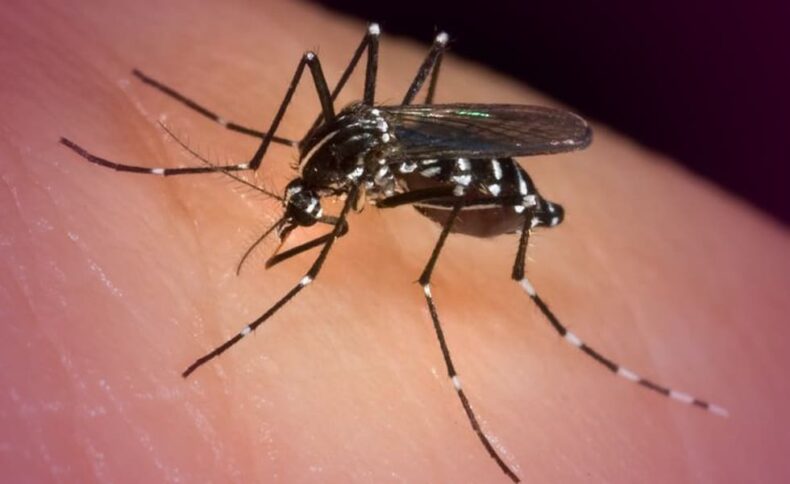Residents of Kolkata boroughs are facing the wrath of dengue-spreading mosquitoes. Over 3600 cases have been reported till the last week of October, with the maximum number of patients from borough number 12.

How does Dengue happen?
Dengue, also known as break-bone fever, is a painful viral disease transmitted by a female Aedes aegypti mosquito. This vector is also a carrier of Chikungunya, Zika virus, Tick-borne encephalitis, West Nile fever, and Yellow fever.
Fun Fact About Dengue
Only female mosquitoes that transmit dengue are able to bite because they require a specific protein found in human blood in order to lay more eggs. Additionally, it’s crucial to exercise caution around dawn and dusk because that’s when mosquitoes are most active.
Types of Dengue
Various types of dengue fever include dengue hemorrhagic fever and dengue shock syndrome. When a person is suffering from the former, there is bleeding from the gums, nose, and even skin. A person is claimed to be suffering from dengue shock syndrome when the body goes into a state of shock.
There is a further third type in which a person is infected with the first type of virus and further develops an infection with the second type of virus, thus suffering from a highly serious dengue hemorrhagic fever with severe shock.
Stages of Dengue Fever
The first stage is the Incubation Stage when the symptoms do not manifest. The second stage is the Febrile Stage in which symptoms show up and blood tests are conducted for a proper diagnosis of the disease.
The third stage and “the most critical stage”, according to Dr. Paramapal Singh Dhaliwal, M.D. Medicine, for “constant monitoring of blood counts is needed. In case the platelet counts fall drastically, immediate transfusion is required.”
The final stage is termed the “Convalescent Stage”, which involves the recuperation of a patient.
Symptoms of Dengue Fever
According to Dr. Parampal Singh Dhaliwal, senior doctor of medicine, “Typical symptoms of dengue fever include severe headaches at the back of the eyes, high fever, typically around 103 to 105, along with severe muscle and joint pain.”
The symptoms of hemorrhagic fever include “blood in stool, vomit, bleeding spots on the skin with bluish-black spots, and in some serious cases, malfunctioning of lymphatic vessels.”
Teenagers and children usually suffer from dengue shock syndrome. The fever is a constant across all 3 types of this disease, but what makes this one particularly fatal is the internal bleeding from blood vessels and subsequent low blood pressure, which causes the body to go into a state of shock.
Prevention of Dengue
- No stagnant water: Standing water is a breeding ground for mosquitoes. Staying away from construction sites, covering water storage tanks, and frequently cleaning coolers are vital to prevent the multiplying of mosquitoes.
- Maintain hygiene: Cutting down overgrown grass, proper disposal of solid waste, and spraying proper insecticides where superfluous vegetation has grown out of control.
- Community effort: If one is living in a gated community, it is vital to come together and figure out ways to repair potholes so as to prevent water from filling in potholes or planters.
Contacting the Municipal Corporation at the right time is very important. Requesting them to spray larvicide to kill the larvae before the onset of monsoons is highly recommended.
- Protection from mosquitoes: Wearing clothes that reduce exposure to skin, and using safety nets, window screens, coils, and vaporizers can prevent mosquitoes from entering the house. Camphor is an excellent mosquito repellent. Light it for 15-20 minutes room and the mosquitoes, if there were any, will die.
Another simple technique is to plant Tulsi. It also acts as a safe, all-natural, and effective mosquito repellent.
- Mosquito Control: Densely populated areas are the most dangerous and the riskiest ones. In Kolkata, Kasba, Jadavpur, and Tollygunge are the worst-hit areas. They are situated in the southern region of the state and reported almost 85% of the total cases. It has been reported that these areas have a lot of construction activities going on due to which there is filth and unhygienic living conditions.
- Diet: Patients who are recovering from dengue must make sure that they have fruits like pomegranates, vitamin B12-rich foods, lean proteins, and foods high in folates like eggs and beans.
It is not a very challenging task to prevent the spread of dengue for it is not contagious i.e., it does not spread from one person to another. Therefore, by ensuring cleanliness at a personal level, it can be easily prevented.













